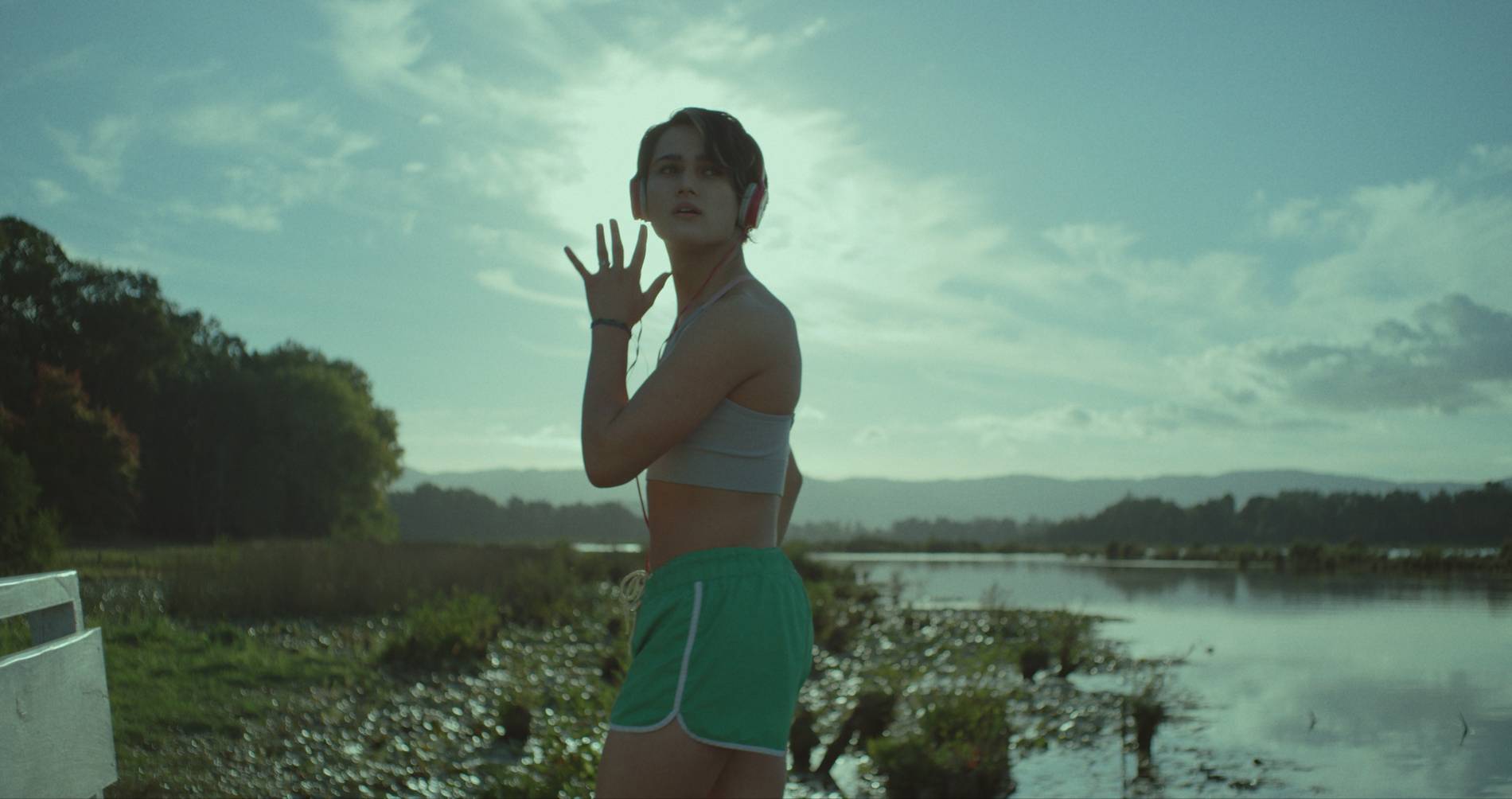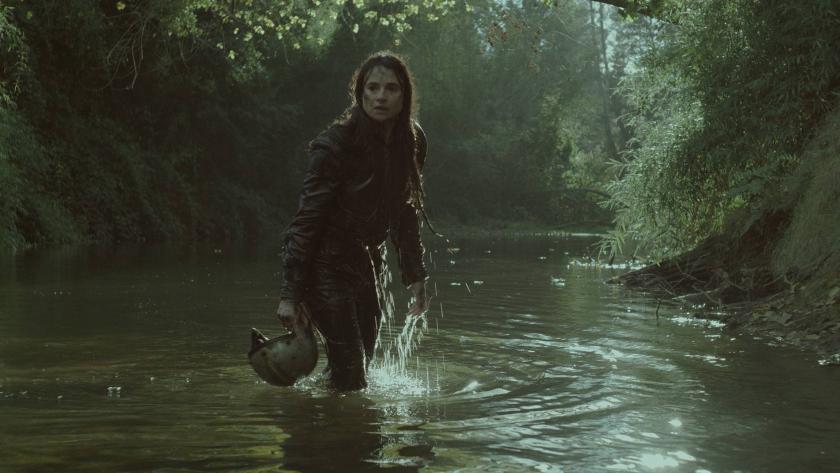Francisca Alegría’s debut is an eco-fable about mourning and enduring love, for a mother and Mother Earth. We start by Chile’s River Cruces, where a mill pumps poison, and the fish hear a death-song in the previously “sweet and clear” water. Magdalena (Mia Maestro), who drowned herself here decades ago, breaks the surface, gasping and suddenly alive, and walks back into the world.
The family Magdalena left behind are meanwhile riven. Daughter Cecilia (Leonor Varela, pictured below) is a surgeon in the city, raising her own young daughter Alma (Laura Del Rio) and teenage Tomás (Enzo Ferrada, pictured bottom), who now identifies as female, a shift she’s not quite ready for, while brother Bernardo (Marcial Tagle) runs the family dairy farm under oppressive patriarch Enrique (Alfredo Castro). When Enrique claims to have seen his dead wife and collapses, the family reunite at the farm.
 Magdalena at first hovers unseen, unable to speak, but sparking mobile phones and microwaves in her wake. Her presence is grasped first by family servant Felicia (Maria Velasquez), with her old knowledge of the porous passage between life and death. Gradually, like Christ’s return, they all see and believe. Magdalena isn’t the only portent, as TV news tallies hills of beached fish, bees die, the herd sickens, and a cow loose in the jungle night balefully confronts Cecilia. Alegría lingers on the cow’s enigmatic, richly alive eyes, asking us, like Cow and EO, to contemplate our fellow animals.
Magdalena at first hovers unseen, unable to speak, but sparking mobile phones and microwaves in her wake. Her presence is grasped first by family servant Felicia (Maria Velasquez), with her old knowledge of the porous passage between life and death. Gradually, like Christ’s return, they all see and believe. Magdalena isn’t the only portent, as TV news tallies hills of beached fish, bees die, the herd sickens, and a cow loose in the jungle night balefully confronts Cecilia. Alegría lingers on the cow’s enigmatic, richly alive eyes, asking us, like Cow and EO, to contemplate our fellow animals.
Alegría was inspired by reports of mass fish deaths in Chile. She wondered if they sensed their home’s looming apocalypse, as the film’s gentle, choral folk songs communicate the fishes’ “confusion”, even as Magdalena bursts from their blackened water, “a drowned woman…soaked with life”. On the nose eco-themes are, though, less effective than the family ties which earth them in an emotional magic realism. Magdalena movingly bonds with Cecilia, seven when she died and now her elder, and meets Tomás at a club, in a sensual, hazy passage where pulsing music and sex reacquaint her with the world’s pleasures; husband Enrique is though violently rejected, the marriage that led to her suicide unforgiven.
 Alegría’s ideas of patriarchy, transgender recognition and ecological collapse sound over-stuffed, as if she’s packed all her concerns into her debut. Maestro’s wordless, sensual presence as mysterious, wounded Magdalena leads a naturalistic cast in holding these threads together. Scars and crimes are buried in hearts and minds as well as soil and water, and healing one heals the other. Alienatingly odd at first, The Cow Who Sang a Song into the Future is ultimately redemptive, as its ecological corner suffers death and resurrection, a fatal warning and final hope.
Alegría’s ideas of patriarchy, transgender recognition and ecological collapse sound over-stuffed, as if she’s packed all her concerns into her debut. Maestro’s wordless, sensual presence as mysterious, wounded Magdalena leads a naturalistic cast in holding these threads together. Scars and crimes are buried in hearts and minds as well as soil and water, and healing one heals the other. Alienatingly odd at first, The Cow Who Sang a Song into the Future is ultimately redemptive, as its ecological corner suffers death and resurrection, a fatal warning and final hope.















Add comment